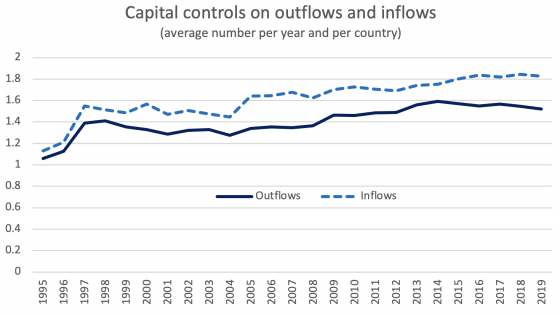DP8753 Capital Controls with International Reserve Accumulation: Can this Be Optimal?
Motivated by the Chinese experience, we analyze a semi-open economy where the central bank has access to international capital markets, but the private sector has not. This enables the central bank to choose an interest rate different from the international rate. We examine the optimal policy of the central bank by modelling it as a Ramsey planner who can choose the level of domestic public debt and of international reserves. The central bank can improve savings opportunities of credit-constrained consumers modelled as in Woodford (1990). We find that in a steady state it is optimal for the central bank to replicate the open economy, i.e., to issue debt financed by the accumulation of reserves so that the domestic interest rate equals the foreign rate. When the economy is in transition, however, a rapidly growing economy has a higher welfare without capital mobility and the optimal interest rate differs from the international rate. We argue that the domestic interest rate should be temporarily above the international rate. We also find that capital controls can still help reach the first best when the planner has more fiscal instruments.

